From the 29th April to 3rd May 2019
IES Guillem Colom Casasnoves school is a secondary school located in the town of Sóller on the island of Mallorca, Spain. The institute offers compulsory secondary education at various levels: lower vocational, professional and undergraduate level. Sóller is a city in the north of the island of Mallorca, with 12000 inhabitants.
The school receives students from the Sóller valley and the surrounding areas. The institute is attended by students from the lower middle class, whose parents are mainly employed in tourism and construction. Lately, because of the crisis, the number of students from other places in Mallorca has increased significantly, especially those who study at undergraduate level. For students with a high possibility of early school leaving, the school has two basic groups of vocational education, one for administrative work and another for cooks and caterers.
The school has 68 teachers and approximately 500 pupils. Among them there are also those with various special needs, including behavioural ones, which is why they employ additional professionals.
The main purpose of this job-shadowing was the observation of inclusion of different types of students with special needs and innovative teaching techniques especially in language learning, project based learning using ICT and outdoor science education. The teachers who attended the job-shadowing educational visit were foreign language teacher Nina Valenčič and natural science teacher Katarina Vodopivec Kolar.
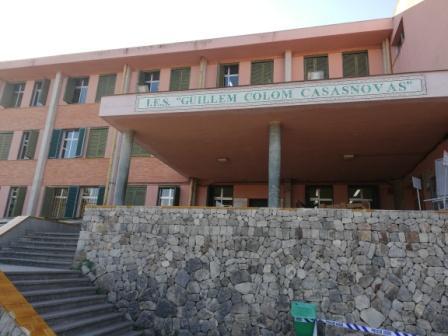
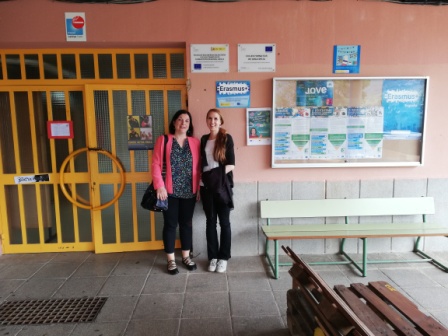
Day 1:
After the initial introductions we first met with the headmaster and the assistant headmasters, who gave us a very insightful tour of the school. After the tour we had a discussion about the Spanish school system and the organization of the school timetables, classes and the curriculum.
We discussed the topic of inclusion more in depth with the school psychologist who explained all the possible ways students can get extra help, from the foreign students and newcomers, to the special needs students with learning disabilities and the gifted students. The school has a fair amount of autonomy when it comes to inclusion and they organize a wide range of different ways all the students can reach their goals.
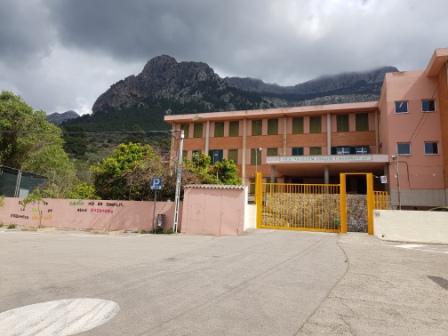
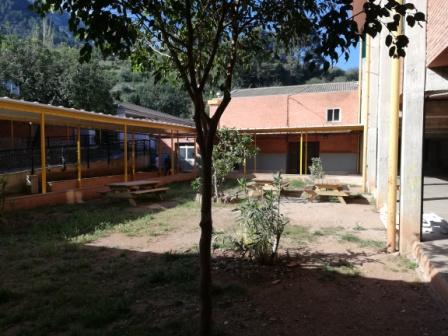
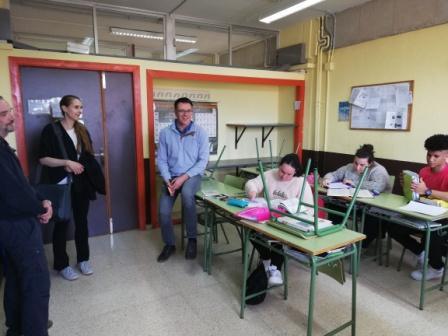
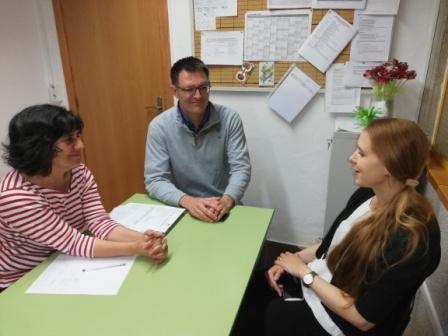
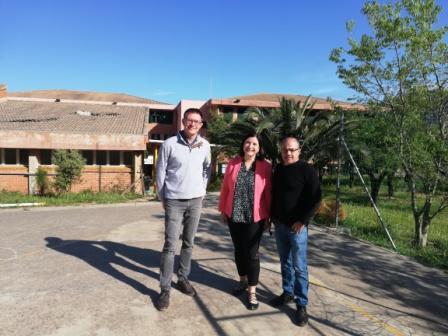
Day 2:
We spent the second day on a science field trip observing the students. We went to Caixa Forum in Palma de Mallorca where the students participated in two 90 minute lecture and experiment workshops. The first workshop was connected with energy and the second with sound and wavelength. Both workshops were extremely interesting and interactive with students actively participating in all the experiments. The aim of the workshop was to explain the theoretical parts of physics with practical experimentation. This was a great example of practical learning where students are highly motivated and learn at a faster pace.
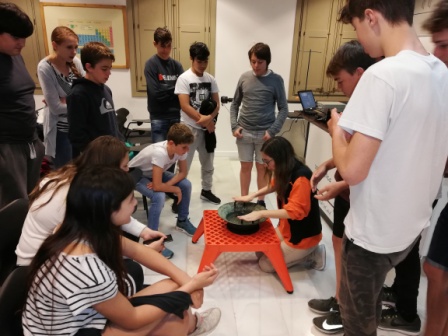
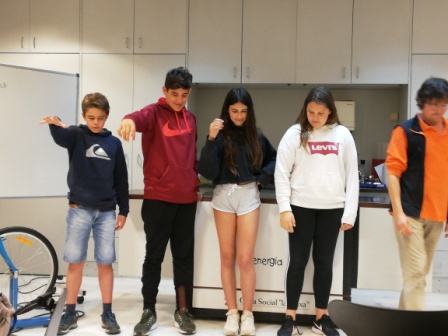
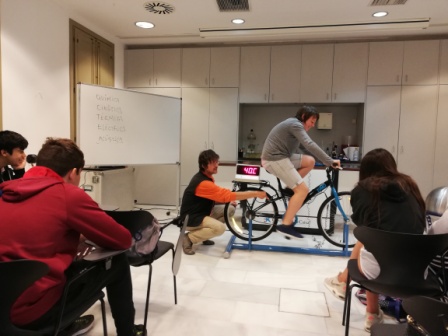
Day 3:
On the third day we went on an excursion to the Tramontana mountains. The Erasmus coordinator and other teachers involved in the project showed us the orientation hike path that they do with their students. The hike is specially prepared for the students as an educational field trip day and includes topics connected with history (the first inhabitants of the island, the Maori period, WW2 and the American military base,...) and with geography (geology, fossils, climate, orientation,...). During the hike we also discussed the Erasmus + project and the meaning of the projects for our schools with the possibility of further cooperation in the coming years.
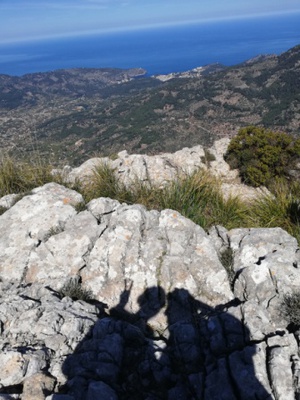
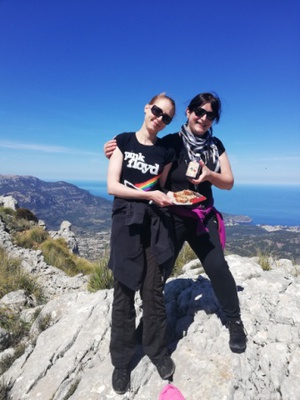
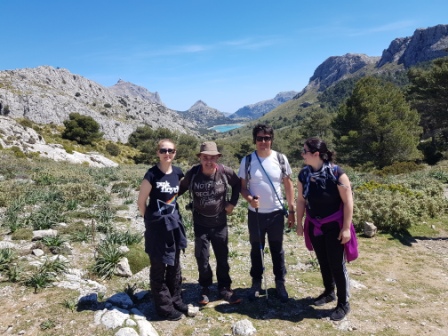
Day 4:
We spent the fourth day at school observing lessons. The entire day was exclusively planned for us to observe a range of different types of lessons that the school offers to their students.
We observed a ‘project work’ lesson where students use inquiry project based learning to work in teams and complete a project each semester. These projects include a wide range of topics from the geographical, historical and cultural themes that students can select for their team. They also need to learn basic ICT skills and publish the project online.
Next we observed lessons with foreign students coming to the school and the inclusion classes that the school provides for them. We also observed a lesson with students with learning disabilities that are having difficulties completing courses. Their lessons are conducted separately from the others and provide only the basic knowledge that they need to pass a grade. In this way the students can focus only on the most important subject and they successfully complete each grade.
We observed a vocational cooking class which is one of the vocational programmes that the secondary school offers. The students first prepared a wide range of dishes and were then also asked to present them to the teachers and serve them in a proper way.
The last lesson we observed was a class of students with learning disabilities who are struggling to pass their exams. In order to motivate them the school offers special classes that involve practical work and can help them pass each grade. The students can work in the garden taking care of plants and vegetables or in the orchard taking care of trees and the maintenance of the school surroundings. These lessons motivate students because they are able to spend most of the time outdoors and don’t have many theoretical subjects.
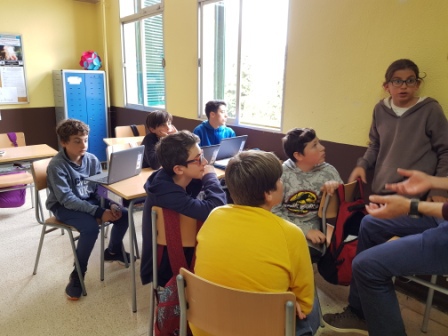
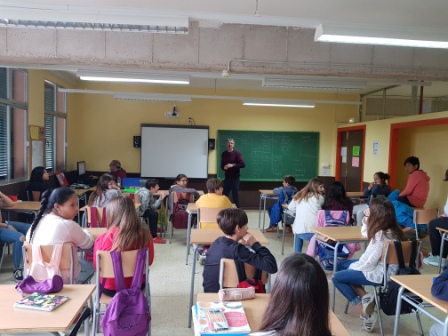
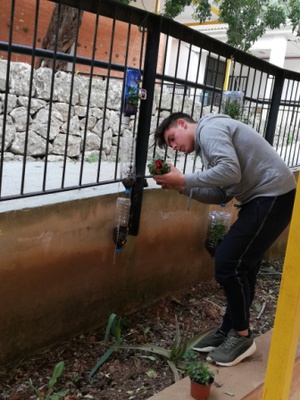
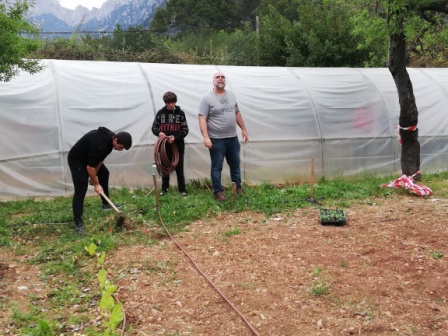
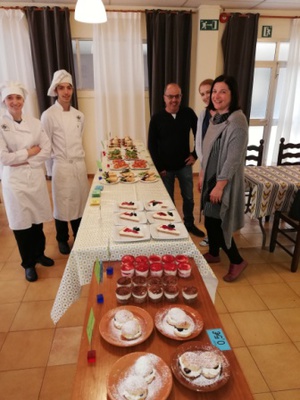
Day 5:
On the last day we had an evaluation with the headmaster and the Erasmus + coordinator. We discussed the job-shadowing week and all the new experiences that we gained during the week. We also discussed the positive aspects of the Erasmus projects and how the newly gained knowledge could be included at our school and in our work. We talked about the importance of cooperation between our European partners and the possibilities of working together in future projects.
The last activity planned for us was a tour of Sóller using the application the students made during their project lessons. The application is a guided tour of Sóller with a detailed map and all the important landmarks explained. There are also short recording that you can listen to while you walk round the town. We completed our tour of the city with a cooking demonstration on the main square prepared by the students for the tourists. This is a special part of their course where students cook for tourists and gain important practical experience.
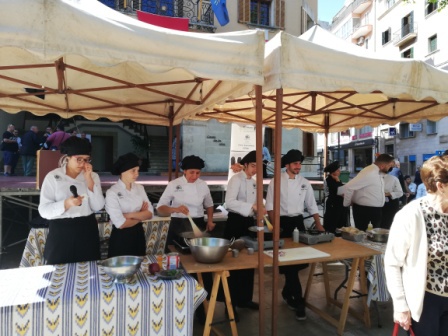
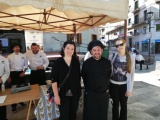
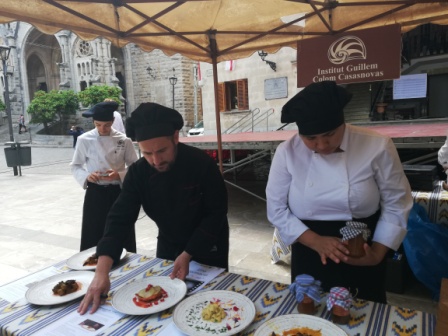
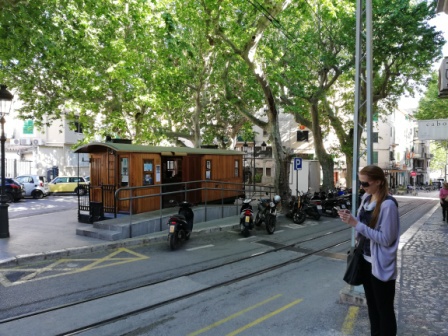
During the job-shadowing week we learnt a lot about the Spanish school system and the possible ways of school organization custom made for students with special needs. We were impressed by the number of courses available to the special needs students and how the classes are organized so the students are encouraged to finish secondary school with the best possible results.
We also spent a lot of time discussing the Erasmus + projects and the positive affects these projects have on the school and its students. We also discusses future projects within the Erasmus + and the possible future cooperation between schools.
We finished the week full of new ideas that we can use at our own school and ideas that can help us change or improve classes for the special needs students.
This job-shadowing educational visit was an excellent opportunity for us to see another school in its entirety, which will undoubtedly help us further in our professional and school life.